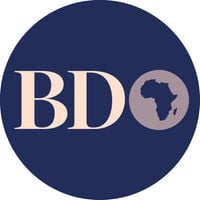SUMMARY
In an interview with the Business Daily, Bank of Kigali CEO Diane Karusisi discusses the lender’s strategy to tap Kenyan investors and play in the regional market.
BANK OF KIGALI RECORDED SIGNIFICANT UPLIFT IN PROFITS. HAS THIS PERFORMANCE CAUSED AN UPTICK OF TRADING AT THE NSE?
We are happy with the performance BK Group Plc has had on the NSE thus far. When we cross-listed on the NSE in 2018, the share price was Sh33.
We've seen this price go as low as Sh12 in 2020, during the Covid-19's toughest times. We were delighted to see the price rise to Sh40 just recently. This is an indication that the Kenyan market is aware of the Group's performance and want to be part of the story.
SINCE LISTING IN NAIROBI, HAS THE BANK ACHIEVED ITS GOAL TO ATTRACT FOREIGN INVESTOR INTEREST?
Attracting foreign investor interest is a journey— being listed on the NSE has enabled foreign investors who previously had custody issues on the RSE [Rwanda Stock Exchange] become shareholders.
The focus now is to push trade volumes and increase visibility on the Kenyan market as we see huge potential.
KENYAN BANKS HAVE MADE A STRONG PLAY OF GROWING THEIR REGIONAL PRESENCE. DOES BANK OF KIGALI HAVE PLANS TO PLAY IN THE REGIONAL SPACE?
We are focused on the Rwandan market for now — we only have 36 percent banked population in Rwanda and therefore we believe there is still lots to do at home.
Once we have our population banked, we will consider growing regionally.
HAVE THE KENYAN ACQUISITIONS SUCH AS KCB’S PURCHASE OF BPR CHALLENGED BANK OF KIGALI’S MARKET SHARE IN RWANDA ESPECIALLY THE RETAIL SPACE?
The KCB and BPR merger has not challenged our market share — we remain the market leader on all key metrics. We welcome this merger and believe it will be good for the market.
We look forward to working together especially on syndication for big projects. Bank of Kigali recently approved an SME strategy that we hope will strengthen our position in this space. While KCB and BPR are strong in the SME sector, we are seeing how we can increase business through our branches.
WHAT ARE THE BANK’S PLANS FOR THE KENYAN MARKET?
The Group cross-listed in 2018 on the NSE after meeting many potential investors telling us about their interest in the Group but they had custody issues with the RSE. Listing on the NSE allowed fungibility on both markets and made it easy for shareholders to acquire shares.
We are reinforcing our Representative office in Nairobi to focus on our regional and international shareholders with an aim to improve liquidity. We are putting focus on investor relations to improve our visibility beyond the region.
HOW CAN BUSINESSES IN THE EAC TAP MORE OPPORTUNITIES IN REGIONAL INTEGRATION?
Regional integration can lead to substantial economic gains. Regional integration allows us to improve market efficiency, share the costs of public goods or large infrastructure projects, reap other non-economic benefits, such as peace and security.
However, we must be careful with the risks to regional integration which need to be identified and well managed. In the EAC we could prioritise connectivity, transport, ICT and energy infrastructure.
HOW CAN BANK OF KIGALI FACILITATE INVESTORS SETTING UP IN RWANDA?
Earlier this year, Rwanda was subjected to a new law on investment promotion and facilitation (“New Investment Code”) repealing the law that was in force since 2015.
This new law brings about a set of new investment incentives mainly geared at enhancing Rwanda's competitiveness, attract cross-border investments, new businesses and financial institutions to operate across the African continent and beyond through the newly set up Kigali International Financial Centre (KIFC).
The first striking change under the New Investment Code relates to the new priority economic sectors such as mining (activities relating to mineral exploration), construction (operation of specialised innovation parks or specialized industrial parks), transport, logistics and electric mobility.
Another important change under the New Investment Code relates to varied tax incentives that have been introduced.
These include preferential corporate income tax rate of three percent applicable to pure holding companies; Tax incentives for entities established by philanthropic investors; preferential withholding tax rate of five percent on dividends and interest paid on securities listed on the RSE; preferential withholding tax rate of 10 percent on interest paid on foreign loans, dividends, royalties, and service fees.
dguguyu@ke.nationmedia.com



No comments:
Post a Comment